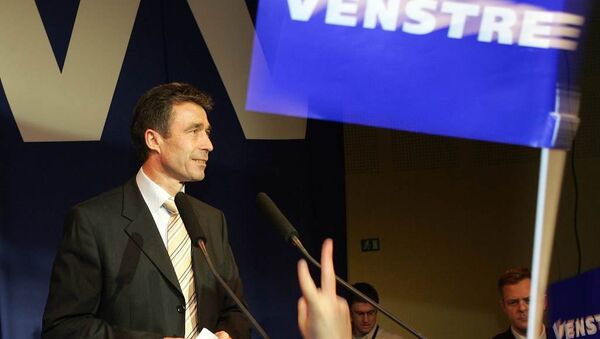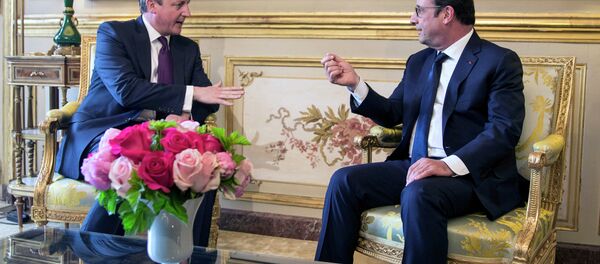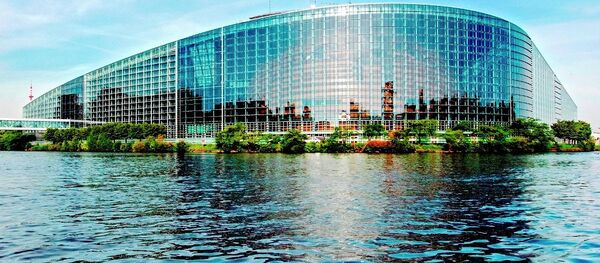The significant move has rocked Danish politics, particularly given that it has the backing of the country's two main opposition parties, who have traditionally had different views on the EU.
The pro-European Venstre Party announced that it had formed an agreement with the Eurosceptic Danish People's Party, which would see them back David Cameron's plans to make it harder to EU citizens to claim benefits in the UK.
"We are far from being in agreement on everything in relation to the EU. But we agree that if Denmark gets a new government after the parliamentary elections on June 18, we will stand behind Britain's, and other like-minded countries', work to ensure that the EU does not become a social union."
Cameron's Conservative party have pledged to give the British public a referendum on whether the UK should stay in a reformed EU before 2017, with the matter of EU citizens claiming benefits seen as a major issue for Eurosceptics in Britain. The concern is also shared by opposition parties in Denmark, with the Danish welfare agreement stating that the groups will work towards ensuring there is "a fair relationship between contributing positively and receiving" welfare benefits.
#Denmark's opposition parties strike deal to back Cameron on EU reform http://t.co/23u0Q0czbd pic.twitter.com/6PJv5fMiPn
— Ian Geldard (@igeldard) June 11, 2015
"We can see that there are increasing withdrawals on Danish welfare services. We need to address the problem while it can still be handled. We agree that if there is a [parliamentary] majority among these parties, we will create a government that will do something both in the EU and here at home to ensure that Danish welfare remains in Denmark," Venstre leader Lars Løkke Rasmussen told TV2 News.
"At last a major breakthrough for Cameron as Denmark's opposition parties back his EU reform" — must feel like Churchill after Pearl Harbor
— MJT (@mjturner1975) June 12, 2015
Foreign Minister Martin Lidegaard hit back at the opposition parties, accusing Venstre of engaging in a "sad" and "worrying" attempt to secure support from other groups in the hope of forming a coalition. "I interpret this move as a genuflection to the Danish People's Party. An attempt to remove the final stone in the road to clear the way for the Danish People's Party to join a government coalition," Lidegaard told Politiken.
Boost for the Brits
While it is not yet known whether these groups will form a government, the decision to openly back British plans for EU reform has been seen as a win for David Cameron, who is continuing talks with Brussels in the hope of renegotiating the UK's agreement with the bloc.
Demand for #EU reform — Senior citizen Finn Larsen says, "I don't want someone in a foreign country deciding what we do here in #Denmark."
— David Martin (@DaymarLaw) June 7, 2015
Until previously, Britain has stood alone in trying to reshape treaties relating to benefits and labor rules. However, Venstre leader Lars Løkke Rasmussen said he had already spoken to PM Cameron to inform him about plans to support the UK's reform efforts.
"I have relayed this intention to Cameron and have been in dialogue with Downing Street," he told TV2 channel.
"The United Kingdom can count on a new Danish government to support them in their efforts to negotiate a new arrangement that secures British welfare, and in the process pave the way for us to push through some of the things we want."
Britain's ongoing threat to pull out of the EU unless a new deal is agreed upon also seems to having an impact, with Danish People's Party leader Kristian Thulesan Dahl saying efforts should be made to keep London in the bloc.
"It is known in the EU, that if you want to keep the British inside the EU, then you have to give them a better deal," he said.
"And if we get a change of government, then we will fight this one battle with the British."
In a sign of potentially more rebellion against Brussels, the Danish opposition said they were intent on developing an "alliance of like-minded European countries" who hope to reform the EU, noting the Eurosceptic movements in The Netherlands, Germany, Austria and Finland.




